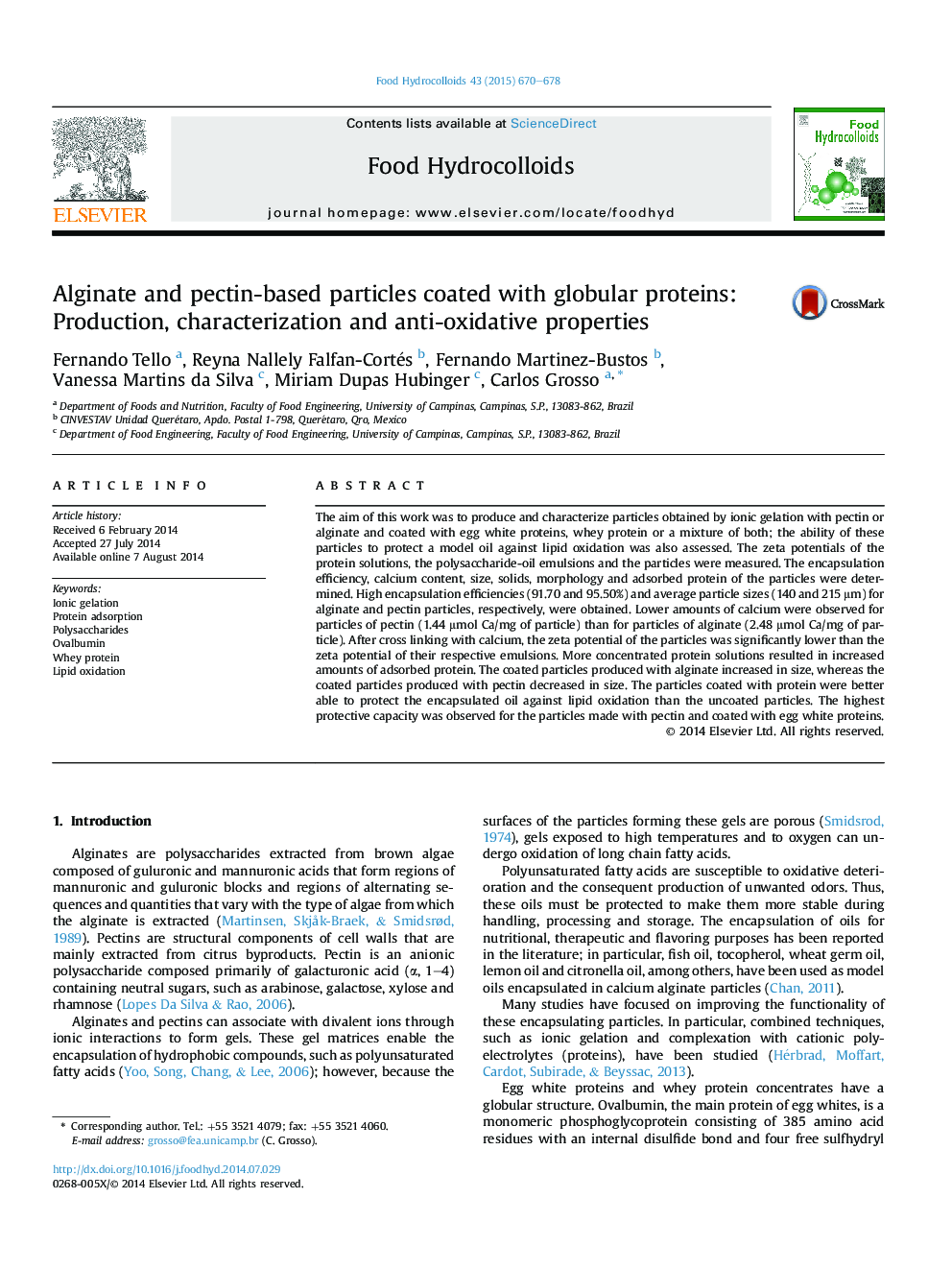| کد مقاله | کد نشریه | سال انتشار | مقاله انگلیسی | نسخه تمام متن |
|---|---|---|---|---|
| 604697 | 1454433 | 2015 | 9 صفحه PDF | دانلود رایگان |
• Particles obtained by ionic gelation covered with protein were produced.
• Egg white proteins, whey protein and a mixture of both were used.
• The ability of these particles against lipid oxidation was assessed.
• Particles coated with protein were better able to protect against lipid oxidation.
• The highest protection was observed for pectin particles made with egg white proteins.
The aim of this work was to produce and characterize particles obtained by ionic gelation with pectin or alginate and coated with egg white proteins, whey protein or a mixture of both; the ability of these particles to protect a model oil against lipid oxidation was also assessed. The zeta potentials of the protein solutions, the polysaccharide-oil emulsions and the particles were measured. The encapsulation efficiency, calcium content, size, solids, morphology and adsorbed protein of the particles were determined. High encapsulation efficiencies (91.70 and 95.50%) and average particle sizes (140 and 215 μm) for alginate and pectin particles, respectively, were obtained. Lower amounts of calcium were observed for particles of pectin (1.44 μmol Ca/mg of particle) than for particles of alginate (2.48 μmol Ca/mg of particle). After cross linking with calcium, the zeta potential of the particles was significantly lower than the zeta potential of their respective emulsions. More concentrated protein solutions resulted in increased amounts of adsorbed protein. The coated particles produced with alginate increased in size, whereas the coated particles produced with pectin decreased in size. The particles coated with protein were better able to protect the encapsulated oil against lipid oxidation than the uncoated particles. The highest protective capacity was observed for the particles made with pectin and coated with egg white proteins.
Figure optionsDownload as PowerPoint slide
Journal: Food Hydrocolloids - Volume 43, January 2015, Pages 670–678
